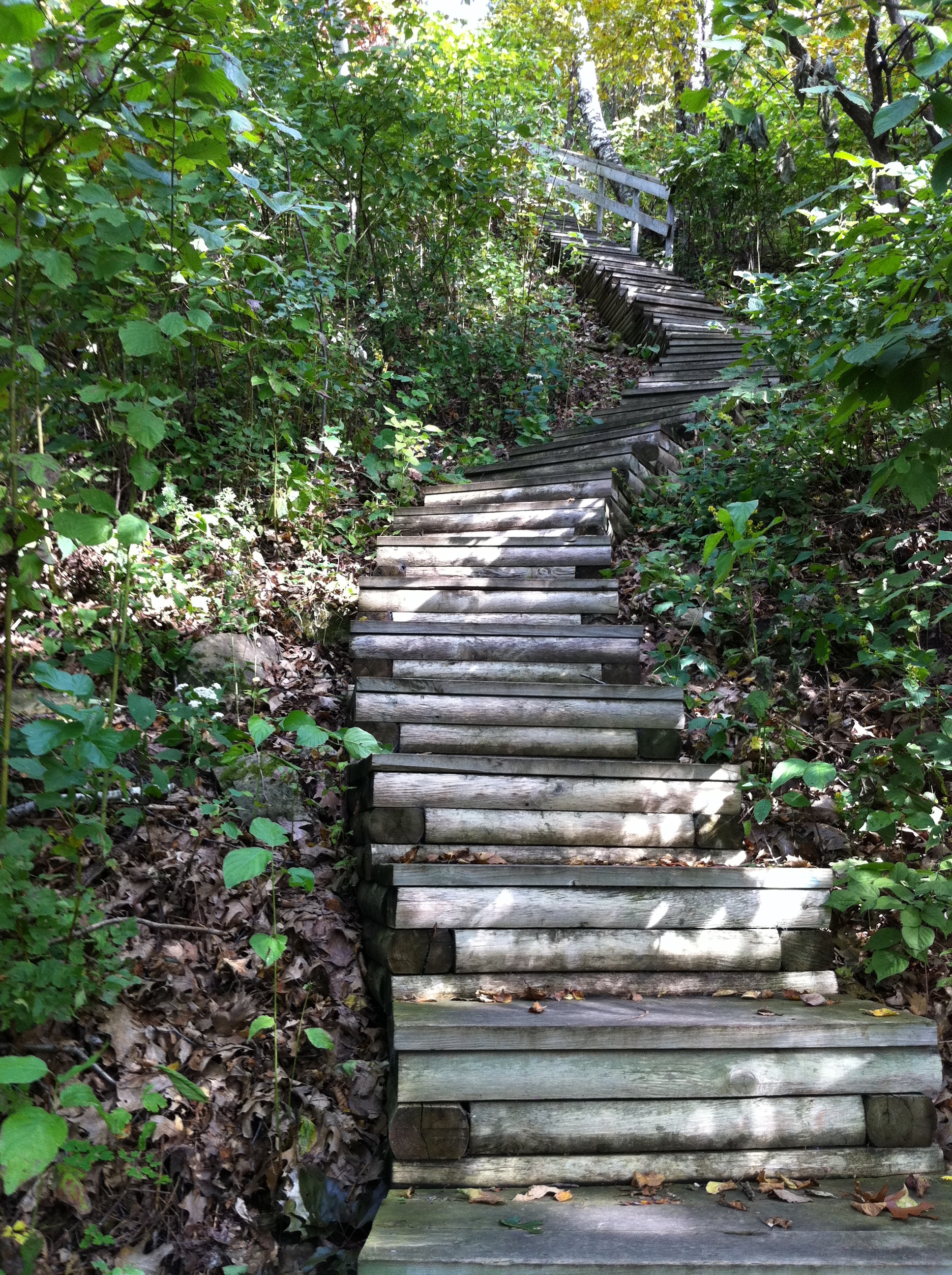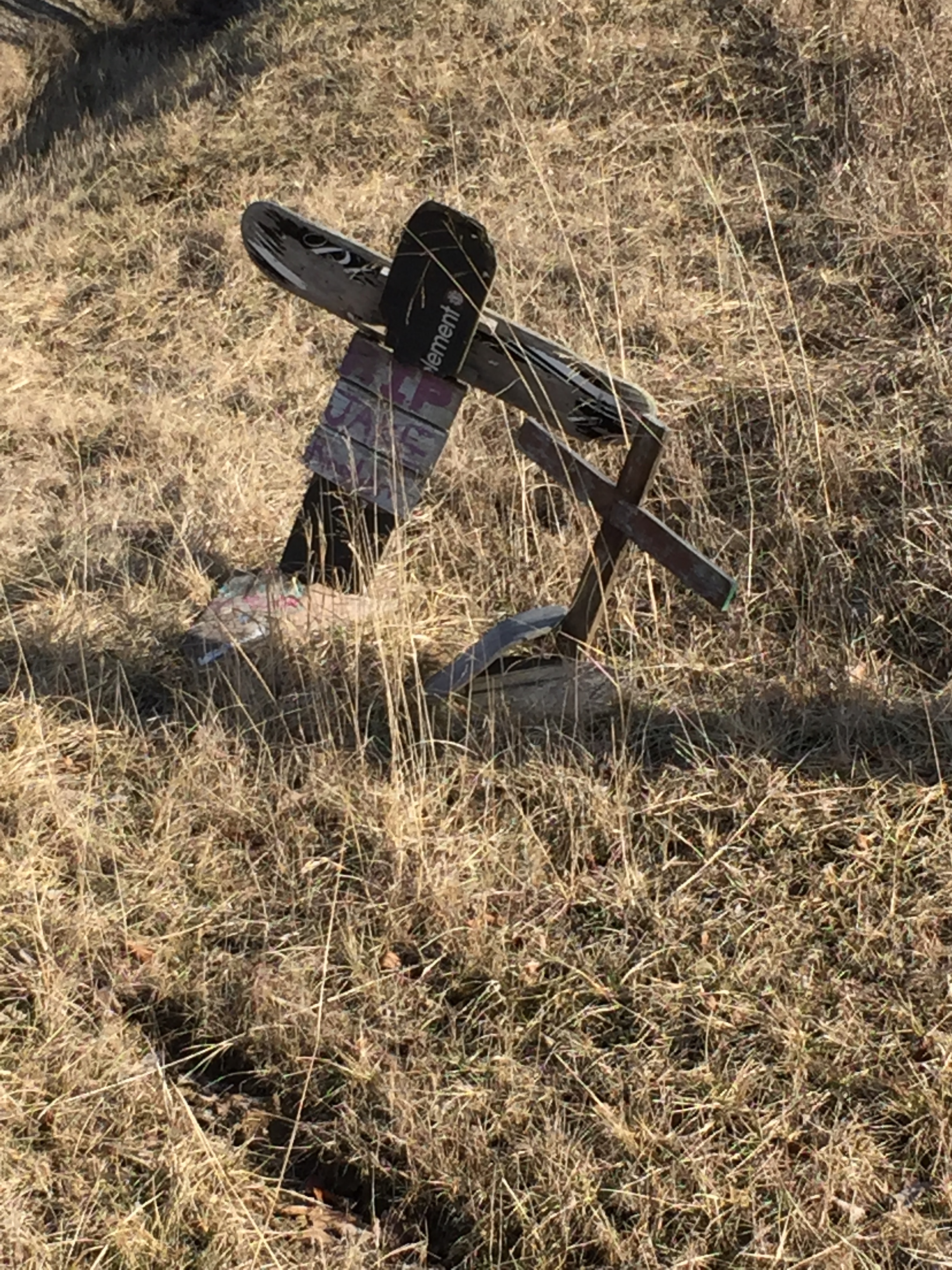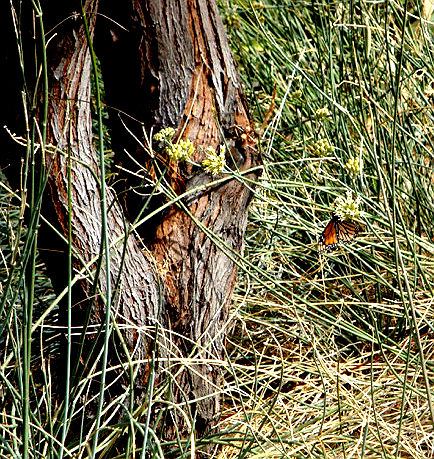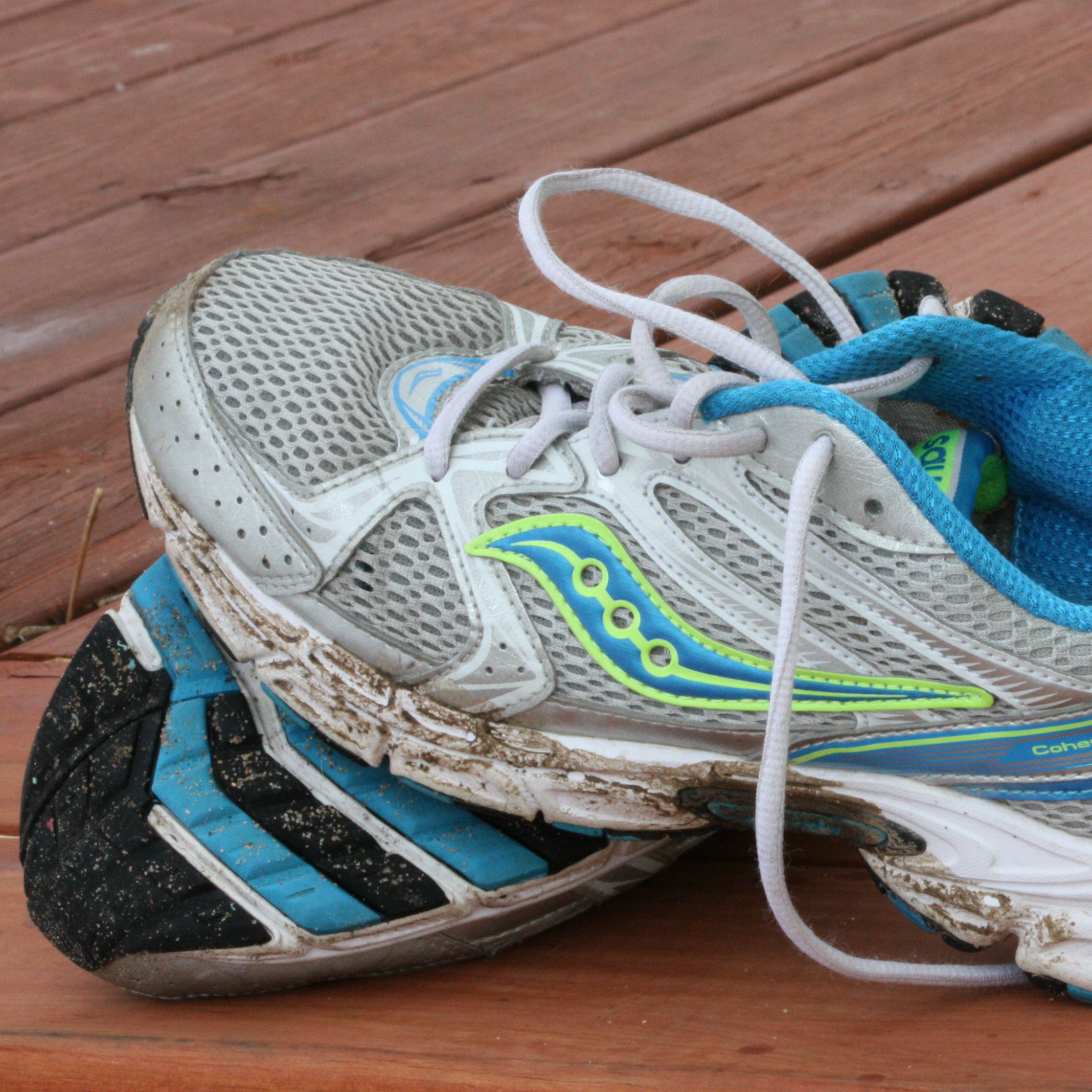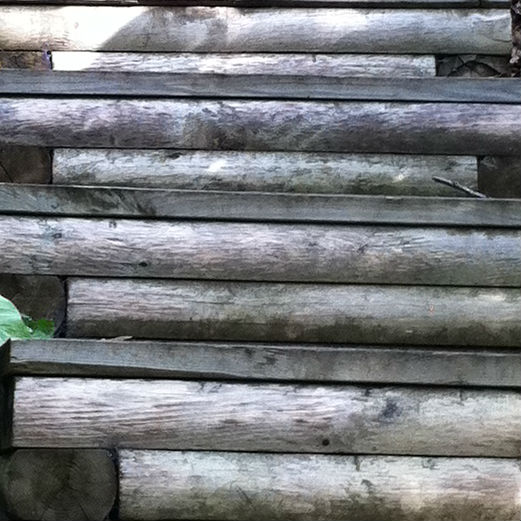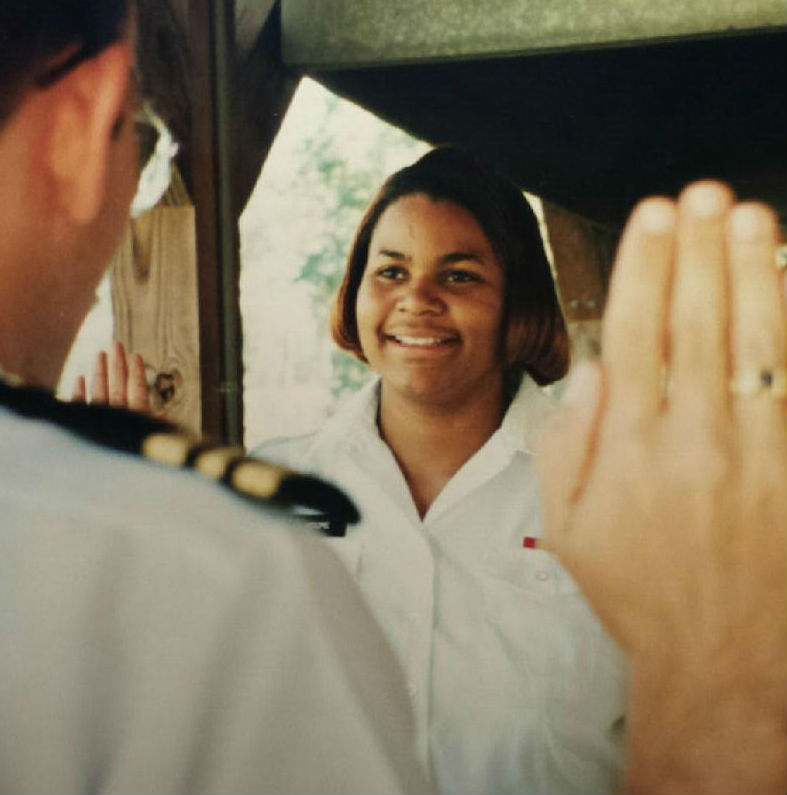In the six months before I had cancer, I fell down three times.
First, in January, on a barely frozen Saturday morning, a silvering of ice on every surface. But the dog had to be walked. The dog, bred for pulling freight in the Northern wilds. It was not her fault. She threatened to topple me on the driest of surfaces, in mid-July, when my flip-flops adhered to the sun-melted asphalt. But now, in the ice-shrouded January, she was standing still. I moved the tiniest bit, just to make way for the neighbor’s car, careening around the corner. The unfriendly neighbor, out to buy grocery-store donuts on Saturday morning.
Was it careening? I can’t remember. Anything that moved that morning was careening, because of the ice-bound stillness, the rigidity of the trees.
I stood still, but then stepped aside, the tiniest step, to avoid the car, watching where I put my foot down.
Not a dry patch. I thought it was a dry patch. But it was hard to tell, on that ice-glittery morning. Nothing was dry. Nothing was to be trusted.
I went down, not even like a cartoon character, not even flailing my arms and legs. I went down at the command of gravity and friction, or anti-friction, just down. My arm cracked, just like that. Crack, and it’s broken, obviously.
What do you do, then, when you go down, and your arm has cracked, and the dog is sniffing your face with her big watery nose, wondering: What new game is this? While you gaze up, stunned, at the indifferent, prison-grey sky? And your neighbor, unfriendly despite the cookies you took to his sullen wife and unruly children when they first moved in, at least stops to say, are you alright? And you say, I think I broke my arm. And he says, oh. Then gets back into his car, and pulls into his snout-house garage, which is tacked onto an exact specimen of the uncharming, beige houses of the suburbs. And the garage door shuts quietly behind him, because of the silent, inexplicable physics of the ice world.
Strike one.
The second time was in public. I never wear heels. I wore heels. The “new” me. Look at me, I can wear heels. A last-ditch attempt at sexy youth, having spent my actual sexy youth wearing only comfy shoes, canvas and plastic, which I sometimes decorated with Crayola markers. Sexy Shoes as the Great Experiment of the Aging Feminist.
I was wearing a dress, even, and nylons, and heels. The restaurant was trendy, but not that great. Not good enough for a dress, and nylons, and heels. But never mind. We were dressed up and on a date. I think my husband was even wearing a jacket, but who knows. He only owns one, and it pretty much stays put on the red hanger in the back of the closet, nursing a chronic case of agoraphobia.
I’d only had one drink. Really. It was not the drink. It was the ice (again). This time, the tiniest piece of ice, not the great, unavoidable swath of ice. I was striding through the trendy, not-that-great restaurant, down the narrow gangplank between the bar and the tables, because the whole place was quite small, actually. Intimate.
Suddenly, more like a cartoon character this time, a cartoon character on a banana peel. Except there was no banana peel. I was down.
It was just a tiny piece of ice, mostly melted. I store the memory of it in my foot, where it imprinted through the thin sole of my imposter dress-up shoes. I went down, just like that, my traitorous skirt flying up around my waist.
There was a gasp, and many diners half-rose out of their chairs, responding to the visceral call, the altruistic gene. Attention: Member of herd is down! A waiter ran over to help me up. My husband offered me his hand.
No, No. Fine. I’m fine. Really.
I’m not drunk, damn it.
Ice on the floor. I tell you.
Strike two.
The third time was my Near Death Experience. A casual fall on a mossy step, head missing the corner by an inch. I already had cancer at this point. At least my body had cancer. I did not yet have cancer, because my brain did not yet know that my body had cancer. You can’t have cancer until your body and your brain cooperate in this matter.
I lay on the leafy ground for a minute, looking up at the trees. Then I took my husband’s hand once again, pulled myself up, and continued on down the steps.
Strike three.
***
There is a moment when you pass through the threshold, the gossamer curtain, the liminal ectoplasm, from not having cancer to having cancer. Like moving from “not-parent” to “parent.” “Parent” did not happen the moment my first-born entered the physical world. Rather, it happened when, returning from the hospital on that sunny June day, I reached towards the screen door, green paint peeling, the latch a little rusty around the edges, and thought: my life will never be the same. And when I entered the house, plastic car seat handle digging into my arm, the baby squirming in his bucket, life as I knew it was over.
With cancer, it was the mammogram technician’s eyes. Or averting thereof. Her refusal to look up from my chart as she explained that she “just needed a sec” for the radiologist to take a look. Consigning me to Pink Gown Purgatory while she went out, for just a sec.
When she hurried back in, the radiologist bustling behind her, his eyes on my films, I knew I had passed through that curtain. The bustling, the hurry, had an exaggerated physical quality, as if it could fill the chasm yawning in front of me with movement and sound. Or at least provide a diversion. Like in the selective attention demo video, where you never notice the guy in the gorilla suit, strolling through the basketball game. Me, the radiologist, and the mammogram tech, all suited up for basketball. Cancer in the gorilla suit.
I’d had a clear mammogram in January, although they’d called me back for “a few more views.” But I’d been called back in other years. In fact, call-backs had become fairly routine. Like forgetting to write my name on math papers in fifth grade. Kind of troublesome, but no harm done in the end.
But on that last Monday in July, before the Thursday eye-avertings, there it was. A lump.
I had pretty much dispensed with self-exams. The research showed they didn’t accomplish much, really. But my annual exam appointment was on Tuesday, so on Monday, in the shower, hmm, I wonder if they’re right about that. I’d hate to go in and have a massive lump I never noticed. How irresponsible. How careless. Like driving with your blinker on and your gas cap hanging open.
My fingers went right to it, as if my body knew I had cancer and was done waiting for me to figure it out. Okay, brain, don’t over-think this. Here’s the lump.
It wasn’t much of a lump. More like a weirdly grainy area. Not like the lump in the fake boob we passed around, some of us grimacing, some giggling, in ninth-grade health class thirty years before; plastic breast with ready-made cancer. (Where were the boys that day anyway? Feeling up fake testicles?)
But the tiny step through the gossamer curtain did not occur on that Monday in the shower, or even on Tuesday, when my doctor, looking thoughtful, prodded the area. Grainy, she pronounced. Let’s do a mammogram.
Maybe I’m wrong, but I believe she looked at my name on her schedule as a bright spot, not a cancer candidate. I am what is known as “compliant.” In fact, I am the queen of compliance. Exams, screenings, immunizations—I’m on board. I don’t smoke or fool around. I drink some wine on the weekend, but that’s good for my heart, right? My father, tragically, died too early of dementia, but otherwise my relatives die of old age, counting the days. My worst vices are expensive chocolate and Grey’s Anatomy.
Besides, we liked to swap titles of recent good reads while she probed my nether regions.
So I made the mammogram appointment for Thursday morning. Despite the “grainy” pronouncement, I wasn’t worried. I could wait until Thursday.
Even Thursday morning, when I could not have better staged a real life Stupid Metaphor, I wasn’t really worried. I was fussing around in the kitchen, hurrying to clean up so I would make my 8:30 appointment. I don’t know how it happened. I swear I didn’t touch it. No ice was involved.
My favorite drinking glass, the lone remnant of a four-glass set, a wedding present in 1984, shattered.
These were quality glasses. Not cheap Target junk that breaks into dagger-like shards. It shattered into a thousand little crystalline pieces. (Okay, I know, literature has been here before, but this actually happened.)
I thought: give me a freaking break. Off to get the cancer mammogram, and my favorite glass shatters as I go out the door. I can’t possibly have cancer, because that would be the stupidest thing that has ever happened to me.
But, of course, I did have cancer. And I was only a few eye-avertings and a gorilla basketball game away from knowing it.
***
So a few hours later that Thursday morning, after the mammogram, I was in a biopsy procedure room, bared to the waist, slathered with betadine, needle poised for the assault.
Those rooms are dimly lit, as if it’s date night with the radiologist. I’m sure there is a perfectly good medical-scientific explanation. Screens, ultrasound images, the necessity of eye avertings. Or maybe not. Maybe it’s about keeping the half-naked, shivering woman, who is envisioning her motherless children and her husband’s remarriage to the cute divorcee down the block, from finding the door.
The voices were all so deliberately soothing. The radiologist was so nice. He apologized profusely with every SNAP of the biopsy extractor, which sounds something like a staple gun.
Okay hold really still, I’m going to count to three, then you’ll hear a snap, okay? Ready? One. Two. Three. SNAP. Sorry. Really sorry about that. Okay hold really still again, I’m going to count to three, then you’ll hear a snap, okay? Ready? One. Two. Three. SNAP. Sorry about that. Really sorry.
Okay, I get it. You’re sorry. Snap. Just do it and get me the hell out of here.
The blonde women in pink scrubs had multiplied, the eye averters. There was one to open the plastic packaging on the equipment, one to guide the phallic ultrasound wand across the terrain of my left breast, and one to pat me on the shoulder and help me pretend I did not have cancer. I wondered if my husband would marry the divorcee or just go back and forth between houses at odd hours, out of respect for the children.
Your doctor will call you. Probably tomorrow afternoon. Leave your number with the nurse.
***
It’s a long afternoon when you are waiting for that call. You spend some time feeling sorry you’re making the doctor’s day harder. How awful, delivering terrible news on Friday afternoon. Does she put it off all day because she can’t see another patient after that? Or is 4:00 really when the lab results arrive?
Then you realize that after the doctor delivers the news, she packs up her doctor tools, locks the clinic door, and goes home to a weekend of boating or poolside reading, or whatever she spends her doctor money on. Whereas you spend the weekend thinking about whether you’re going to die.
You obsessively check your phone for messages, even though the ringer is turned on high and the vibrate is on, and the phone nestles in your pocket, right next to your body, so even if a truck rumbled through the room, you would still feel it tickling your thigh. Every few minutes, you take it out of your pocket and switch the ringer on and off, just to make sure, and check the battery level while you’re at it.
I didn’t want to take the call in the car. But by late afternoon, my doctor hadn’t called, and I had a haircut appointment with Samantha at 4:45. And if there is one thing you don’t mess with, it’s a haircut appointment with Samantha. So I got in the car.
The phone rang as I headed down the green, corn-lined corridor that takes me into town. I unflipped the phone and told my doctor I was driving. She said, Well, why don’t you pull over. I can wait.
Those are not the words you want to hear from your doctor. I can wait. Doctors don’t Wait for You. You Wait for Them. That’s one of the Rules of the Universe.
I pulled onto a tiny shoulder of road. The corn corridor was being rebuilt, and it was hot and noisy and reeked of asphalt. The asphalt rollers rumbled around me like alien insects on steroids. There was nowhere else to park.
It is a cancer, she said. We don’t know much yet, but it’s blah blah positive and blah blah other positive, which is the most common blah blah, but blah blah Monday when I’m not in, so blah blah blah. Okay?
Down. Crack.
***
Several months later, I’d made it through the biopsies, the bilateral mastectomy, several breast reconstruction procedures, and two sessions of chemotherapy. My hair had fallen out, I was taking a lot of anti-nausea drugs, and I was always tired. But other than a few weeks off for surgery, I had continued to go to work, see friends, practice yoga. The first two chemo sessions laid me low for several days, but I bounced back and continued on my optimistic way, sure I could vanquish the remaining four sessions.
So when chemo session three rolled around, I told my husband it would be totally fine for him to skip going to chemo with me this time. And it would be totally fine for me to put in a full day of work before I went to chemo. And it would be totally fine to spend the next day at home by myself, since he had commitments elsewhere.
Whatever the reason, the day after that chemo session, I crashed. My body burned and ached and refused to move, and I could find no relief. It felt as though every cell was trying to escape some catastrophe, ready to jump ship if only they could. All I could do was enter the darkness and await my fate. For the first time since my diagnosis, I felt despair. Not because I thought I was going to die. Rather, because I knew this treatment was meant to accomplish the opposite: to keep me alive. Death was not a relief I could hope for.
I lay on the sofa, unable to crawl upstairs to my bed, and watched streaks of light filter through the blinds and inch across the wall. The dog lay on the floor next to me, her nose on her paws, somehow understanding that I could not get up to let her out into the bracing November air, which she would have preferred. I didn’t have the energy to reach down and stroke her head, or to swat the cats away as they hovered on the back of the sofa, or to think about a distraction like TV. I turned my head to vomit into the stainless steel bowl we keep especially for that purpose, but then couldn’t get up to empty it. It sat on the coffee table, stinking up the room with its contents.
And I began to wonder. If there is A Plan for Me, forged by The Universe (about which I have grave doubts), why had I survived that near-death fall last spring, with only a few-days’ stiff neck as remembrance, just to be preserved for this ordeal of advanced-stage cancer, with its multiple surgeries and chemo infusions, with the radiation looming ahead and the multiple infections I’d already had, and who knew what else that would befall me along the way? Wouldn’t it have been better to die quickly, in that hapless fall, in a moistly green, temperate paradise, on a morning hike with my sweetheart, because the wooden steps into the ravine were damp from a passing shower?
I shut my eyes and tried not to think.
Around five o’clock, my husband came home. He saw me on the sofa, the stainless steel bowl overflowing on the table next to me, and dropped his bags. I cracked open an eye and looked at him.
“I can’t do this,” I said, starting to cry. I told him how terrible I felt, and how I had tried to be brave through everything, but couldn’t do it any more, and how I didn’t care what happened to me. “I would rather die than feel like this again.”
He patted my leg while I cried, and I wailed and raged until I had nothing left. Then he emptied the putrid bowl, fetched the tissues and a glass of water, and helped me sit up so I could sip it.
“You don’t have to do anything you don’t want to do,” he said, as I gulped down tears and sipped my water. “But give it one more session. For me. For the kids. If you want to stop after that, okay. But don’t decide right now. Now is not the time.” Then he helped me upstairs and put me to bed.
The next chemo session, the day before Thanksgiving, was routine. But I still feared the following day when I expected the leaden sickness and despair to descend again. So on Thanksgiving Day, I stayed upstairs, sleeping on and off, and waited for the full impact to hit me. The sounds of family arriving and the clinking and clanking of dinner preparations infected my dreams, making me restless.
Mid-day, I awoke and realized that I didn’t yet feel as sick as I expected. But I lay there anyway, miserable and sorry for myself. I began to smell turkey roasting and gravy simmering. Soon, the aroma of warming pies and caramelizing vegetables mingled with the turkey. As I came around, I realized the thought of food did not make me feel ill, as I expected. I was actually hungry. I lay there a few minutes watching the crows squabble on the icy branches outside my window. Then I got up, washed my face, pulled my favorite red hat onto my bald head, and went downstairs.
I inserted myself between my daughter and my husband and accepted a small serving of turkey, mashed potatoes, and gravy. It tasted pretty good, so I had a little more. Then I had a little more. Then I had some pie, and a little more pie, because we always have three kinds—and who can choose, really? The girls sang show tunes at the piano while Uncle Rick and the boys cleaned up the mess. We all slipped the dog turkey scraps when we thought no one else was looking.
And then I knew. Whether or not there was A Plan for Me, forged by The Universe, the answer to my question was: No. It would not have been better to die in a tragic fall, a few months before my cancer diagnosis, before I had cancer, and thus not actually live to have cancer.
The inventory that made my life meaningful before cancer mirrors the inventory that makes my life meaningful during and after cancer: the comfort of family, a meal with friends, satisfying work, music in my ears, good books, long hikes, dark chocolate, white cupcakes, fresh organic greens, dog walks on frigid, ice-bound mornings, eagles soaring over the Mississippi River, martinis shaken by the hands of my sweetheart, served in a chilled glass. None of that has changed.
Mary Dunnewold is a lawyer and educator who currently does sexual misconduct prevention and response work at a liberal arts college. Her writing has appeared in Brain, Child; nou.org; and Coping. She has also written extensively about legal writing, legal professionalism, and law school, including a regular column for the ABA Student Lawyer Magazine. Mary holds a BA from St. Olaf College, an MA in Anthropology from the University of Minnesota, and a JD from the University of Minnesota School of Law. This essay is an excerpt from her cancer memoir, Patterns, which she hopes to publish soon. She lives in Northfield, Minnesota.
